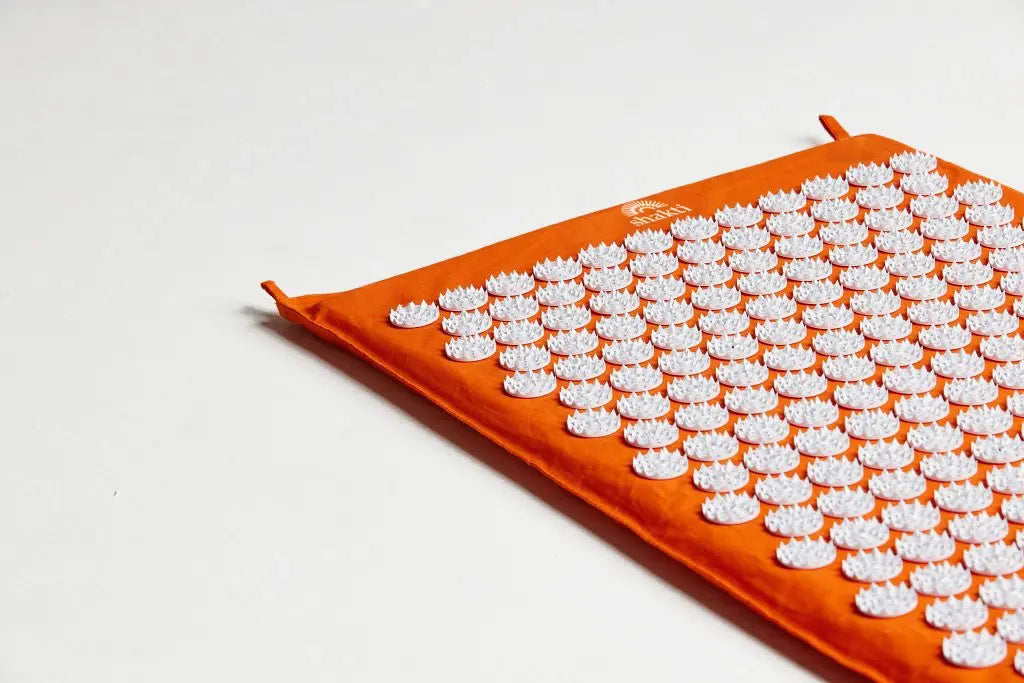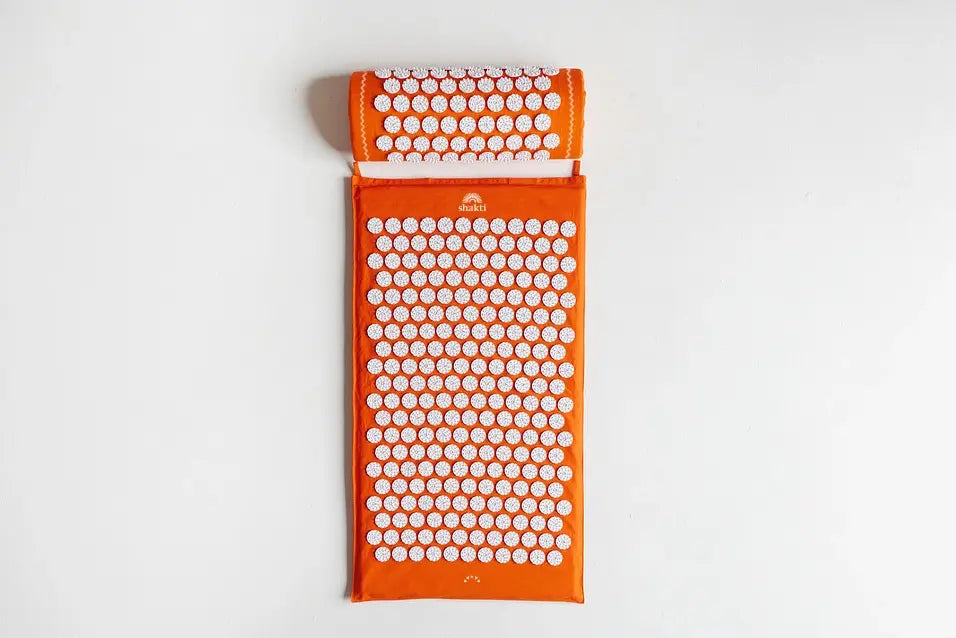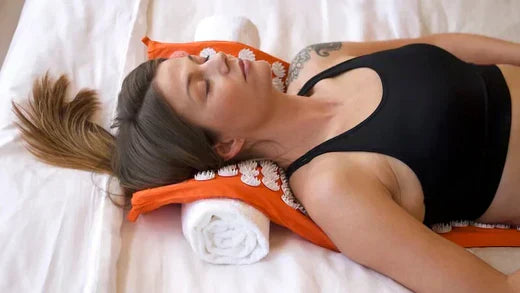Unfortunately, the issue of insomnia often remains hidden in the dark while millions of people struggle night after night. In a world that never seems to rest, the many effects of this insomnia are often overlooked or simply underestimated. But for those who suffer from insomnia, every night is a strain on body and mind. Restful sleep? There is no such thing - and so the next day becomes a tour de force. But it doesn't have to be that way! Let's take a closer look at the topic of sleep disorders together. Above all, we want to show you what measures you can take if you have sleep problems. Good sleep hygiene plays a major role here. But what exactly is sleep hygiene? And how can you improve your sleep hygiene? We will now provide you with answers to these and many other questions.
Content
1. sleep hygiene and its definition - what is it anyway?
2. sleep hygiene: tips, measures and general rules
3. sleep hygiene and its rules in psychology
4 How important is sleep hygiene for depression?
5. sleep hygiene for children & babies - what do you need to consider?
Sleep hygiene and its definition - what is it anyway?
Let's start with a short version and then work our way to a more detailed definition. Sleep hygiene is more important for your well-being than almost anything else, but unfortunately it is often underestimated and therefore neglected. Sleep hygiene is therefore not just a simple term, but something that affects your quality of life in many ways. We want to get to the bottom of this!
Good sleep hygiene is more than just sticking to a fixed sleep schedule. It's about how you respect yourself and your body. When you live in a world that never seems to rest, the importance of sleep can easily be overlooked. But sleep hygiene is the key to a healthy, happy life. It's simply about giving your body and mind the time to regenerate and heal. It means consciously taking time for yourself to rest - not just physically, but mentally too. After all, your mind needs rest after a busy day just as much as your body does.
The good news is that there are several things you can do to make this happen. Imagine, for example, slipping into a freshly made bed in the evening, feeling the cool bed linen on your skin and slowly sinking into your Pillow . You breathe in and out deeply, letting go of all the stress and worries of the day. This is sleep hygiene - the art of making your sleeping space a real place of rest. But a healthy sleep strategy also means paying attention to your daily habits and activities. For example, it's about reducing screen time before bed to calm your mind. It means avoiding heavy food and alcohol just before sleep. And it's important to develop a suitable sleeping environment and an individual evening routine. The following sleep hygiene rules can help you do this.
Sleep hygiene: tips, measures and general rules
There are a variety of tips for an optimal sleep strategy. They can all help you promote restful sleep. The more you implement, the better. First, these measures are aimed at creating an optimal sleeping environment. The main thing here is to provide your body with ideal conditions so that it can easily and quickly drift off to a restful sleep. On the other hand, you should also take care of your mind. It, too, needs support so that perfect sleep is possible. For both aspects - body and mind - there are clear sleep hygiene measures that we would like to recommend to you. If you follow the following seven most important rules, your body will certainly be able to switch off better:
Sleep hygiene: 7 rules that really help you
- Regular sleep-wake cycle: Try to always go to bed at the same time and get up at roughly the same time - even at weekends. We know that it's great to sleep in late on a Saturday or Sunday, but this irregularity unfortunately messes up your body. Fixed sleeping and waking times, on the other hand, help you to develop a stable rhythm. And this in turn makes it easier to fall asleep and stay asleep.
- Pleasant sleeping environment: Some people can fall asleep next to a loudspeaker. If you (like most people) need a little more "sleeping ambience", there are a few simple measures for your bedroom. It should always be absolutely dark (blackout blinds or thick curtains) rather cool (17-20 degrees Celsius) and of course be quiet. Sometimes a quietly ticking wall clock is enough to prevent you from falling asleep. So if in doubt: out with it! However, a comfortable, supportive mattress and a Pillow that meets your needs should definitely be brought in. Make sure you choose natural and breathable materials.
- Screen break before going to bed: Do you know about the hormones serotonin and melatonin? They help to regulate your sleep-wake cycle. Here's how it works: Melatonin production is strongly influenced by light. When it gets dark outside, your body starts to produce melatonin. In daylight, on the other hand, melatonin production is suppressed. This is why we normally feel awake in daylight and tired in the dark. The blue light from cell phones, tablets and computers can inhibit the production of melatonin, which is why you should avoid using them for at least an hour before going to bed.
- "Sleep-friendly" daily routine: You can make sure that you are nice and tired in the evening during the day. You don't have to exercise for hours on end or work yourself to the bone. Of course, exercise is part of a full day - we'll come to that in more detail in a moment. But it's also important that you avoid long periods of daytime napping. If you do take a nap, keep it short (max. 20-30 minutes) so that you can enjoy a proper deep sleep at night.
- Regular exercise: Regular physical activity can improve your sleep, as it helps to tire out your body. If you get enough exercise, you usually feel more tired and relaxed in the evening, which makes it easier to fall asleep. However, please be careful not to do any intensive exercise just before going to bed.
- Shut down in good time: Give your body and mind enough time to switch from active to rest mode. To do this, reduce physical activity, heavy food, alcohol and caffeine around two to three hours before going to bed. This is because they all stimulate your circulation and organism in different ways, making it unnecessarily difficult for you to fall asleep.
- Get up with the "sun": We have already explained the effects of serotonin and melatonin. You can use these not only to fall asleep, but also to wake up. Natural daylight in the morning can help you to wake up more gently so that you are not torn from an important deep sleep phase.
Sleep hygiene and its rules in psychology
Of course, you can not only prepare your body for a healthy sleep, but also your mind. Both should be well utilized as part of a holistic sleep strategy so that falling asleep in the evening is easy. Therefore, a number of behavioural practices have been developed to help you promote healthy and restful sleep and minimize sleep problems. Here are some of the most important rules of sleep hygiene from a psychological perspective:
- Develop a relaxing evening routine: The better you tune in to falling asleep calmly, the faster and more reliably it will work. So before going to bed, do mainly relaxing activities, e.g. reading, meditation or a warm bath. These will signal to your body and especially your mind that it's time to go to sleep soon and that it can 'wind down'. Our tip: Just ten minutes on the Shakti Mat acupressure mat can relax both your muscles and your mind in the long term - give it a try! Incidentally, such an effective evening routine is also our tip for improved sleep hygiene when working shifts.
- Reduce stress routinely: Hardly anything keeps us awake as effectively as a spinning carousel of thoughts, usually triggered by stress. You can avoid this. Learn stress management techniques such as breathing exercises, progressive muscle relaxation or mindfulness meditation to calm your mind. Writing in a diary can also help you to cope with stress, as this way you don't take stressful thoughts to bed with you, but write them down on paper beforehand. Also helpful: sport. As already mentioned, you shouldn't exercise right before going to bed, but make sure you get enough exercise throughout the day. In the evening, a little relaxation session on the acupressure mat... and you will sink gently into the land of dreams.
- Only use the bedroom for sleeping: All things that have nothing to do with sleep will distract you while you sleep - so get rid of them! From the TV to the desk to the fitness equipment or sewing machine. They stimulate your thoughts, which of course prevents you from getting any rest. So it's better to avoid using the bedroom for work or entertainment so that you have a clear separation between activities and sleep.
Remember that optimizing your sleep strategy is a very individual matter. What bears fruit immediately for one person may take a bit of time for another. And of course, it may take a little time overall to figure out which habits work best for you. Stay patient and always remember: better sleep will have a positive impact on your overall well-being. So it's worth it!
How important is sleep hygiene for depression?
Stable sleep hygiene can play an extremely important role in coping with depression. This is because people who suffer from depression often struggle with sleep disorders. These sleep problems can in turn worsen the symptoms of depression and hinder the healing process. Poor sleep hygiene should therefore be avoided at all costs in cases of depression. More specifically, both good and bad sleep have a significant impact on mood. Poor sleep hygiene or disturbed sleep can lead to increased symptoms of depression, e.g. reduced energy, irritability and difficulty coping with stress. Adequate and quality sleep is therefore crucial for recovery from depression. During sleep, the body repairs itself and the brain processes information and emotions. This is important for "digesting" stressful thoughts and feelings. Reliable sleep hygiene can also improve cognitive function, which is often impaired in depression. For example, a good night's sleep makes it possible to concentrate better, think more clearly and make decisions more quickly. Furthermore, a good sleep strategy can help to reduce the risk of relapse after successfully treating depression. In summary, sleep hygiene is important for depression as it can stabilize mood, promote recovery and significantly improve quality of life.
Sleep hygiene in children & babies - what is there to consider?
Healthy sleep promotes the physical and mental development of babies and children - that is undisputed. This makes it all the more important to support this restful sleep with a suitable sleep strategy. Here are some important points to bear in mind, especially when it comes to sleep hygiene for children and babies:
Sleep hygiene for babies
A safe sleeping environment is of the utmost importance for babies. To this end, the bed must be free of loose bedding, Pillow, soft toys and other objects that could pose a choking hazard. Babies should also always sleep on their backs on a firm, flat mattress to minimize the risk of sudden infant death syndrome. A room temperature of between 18 and 21 degrees Celsius is ideal. So much for the sleeping environment, now for the sleeping arrangements. You can encourage your baby to develop a regular sleep-wake rhythm from an early age. A consistent schedule for sleeping and feeding is helpful for this - not to the minute, of course, but in line with your baby's needs. A calming bedtime ritual, such as a relaxing bath, a gentle massage or reading a book aloud, can signal to your baby that it is now bedtime. Night feeds should be as quiet and dark as possible so that your baby doesn't really wake up, but can drift straight back to sleep.
Sleep hygiene for (small) children
A regular sleep-wake cycle is also very important for older children. In principle, all the rules that we have already presented to you for a healthy sleep strategy for adults apply here: Screens off, no heavy meals or sporting activities just before bedtime, calming evening ritual, enough exercise during the day, dark, cool and quiet room - you probably remember. It is also important that your child gets enough sleep for their age to support their physical and mental development. Our extra tip: A dim night light often helps children to overcome their fears of the dark. However, it should not be too bright, otherwise serotonin production will be stimulated (see above). Of course, sleep needs can vary from child to child. It is therefore important to pay close attention to your child's behavior. This is the only way you can make adjustments if necessary.
Also remember: healthy sleep habits in childhood not only directly promote your child's general health and well-being. It can also help to prevent sleep problems later in life, making sleep hygiene easier in old age.



















